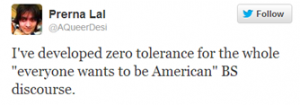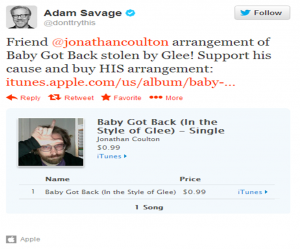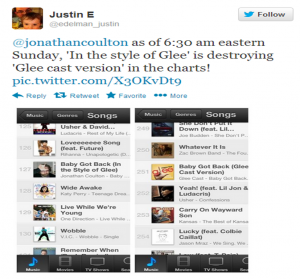Reading the February 17th Christian Science Monitor story Gun control: Future hangs on misunderstood majority of gun owners, I found an interesting quote: “In 2008, America quietly became a majority pro-gun country, according to Gallup. Scholars like Ms. Carlson [Jennifer Carlson, PhD candidate in sociology at UC Berkeley, incoming assistant professor at the University of Toronto in 2013] contend that majority is part of a new, emergent social contract in which the balance of power and social responsibility has slipped noticeably toward the citizen.”
I’m not convinced about the balance of power shifting toward the citizen (I’ve argued that it’s a shift from the state to capital. Also, social “contract” is problematic when generally contracts require the knowledge and consent of the contracted parties), but there is definitely a shift of responsibility toward the citizen (and I don’t just mean the socialization of risk despite the privatization of reward).
This is a logic that has been identified by many scholars as neoliberal, and it’s based on the assumption of the calculating, entrepreneurial and self-promoting individual with no help from the state who succeeds or fails on his (usually his) own merits.
This raised a question for me: In thinking about guns, how can we parse the distance between “it’s your job to take care of yourself; the government isn’t going to do it” and “the government won’t protect you; in fact, it’s going to tyrannize you”? Where on the spectrum does the neoliberal dogma of self-sufficiency and not relying on the state shade into paranoia over state power?
On the face of it, the tyrannical government argument for gun access seems patently absurd. It seems obvious that no matter what kind of arsenal a civilian has, the actual military will be better armed and better trained. Nobody’s arguing to give civilians fighter jets and tanks and drones and nukes. Well, nobody credible. I’m sure someone is.
There are ironies aplenty here: the same conservative political genre that advocates unrestricted guns for citizens also includes those who want to always beef up the military and never cut a dime from it even if it means pitching the poor into misery (or especially if it does, to get them to “stop being freeloaders and work”). This, then, is completely contrary to the alleged goal of preventing tyranny.
Additionally, I saw a great quip in the comments section of a news story ages ago, maybe after the Aurora, CO shooting, but I can’t find it now. Something like, “I for one am more afraid of the guy who has warrantless wiretaps, indefinite detention, and drone surveillance than the one who wants to restrict guns.” That is, the fear about guns in particular and not these other things seems odd, and again these “antiterrorism” measures are often supported by pro-gun folks.
The space between self-responsibility and paranoia turns up seemingly at every turn. Elsewhere, the article says that “Race complicates the debate, starting with research showing that the Madisonian roots of the Second Amendment sprang from racial fears, or at least from fears of slave revolts. It’s a small historical leap from there to gun-purchasing inspired by fear of crime in black urban cores, and on to the first White House push for gun control in two decades being led by the first black president.”
As described in The Second Amendment was Ratified to Preserve Slavery, the early push to have the second amendment and gun rights was a fear by slave owners that the federal government both could not serve the role then being played by state slave patrols and might refuse to do so because of anti-slavery sentiment in the north. The government won’t protect us, and might actually do things that harm us, so we need guns.
With respect to the “fear of crime in black urban cores” factor, “protect yourself” gets expressed more like “the police can’t stop the crime,” and paranoia is something like “black people are always-already criminals and the state gives them welfare money rather than stopping them” (I’m finding it hard to even pin down what that particular crazed view is, but it’s something like that).
Again and again, this pair of things: Morris Fiorina, professor of political science at Stanford, is quoted in the piece as saying: “Part of it is I think this sense that authorities can’t protect you.”
And then, “the Pew survey on personal rights and freedoms found that the share of Americans who feel ‘threatened’ by the government has gone from 38 percent in 1995 to 53 percent today” and “Obama’s election and reelection both spawned frantic runs on guns and ammunition,” and if that’s not a fear of government (and black folks) I don’t know what is.
The point here is that I really don’t think the self-sufficiency idea and the gun-loving are coincidental:
“There is this sense that America is locking and loading because of Obama being elected … and threats Obama may or may not pose,” says Carlson, at the University of Toronto. “That may be true, but this transformation where Americans are turning to guns started in the 1970s, and as quickly as these shootings happen, gun culture has not transformed so quickly.”
The other thing that started in the 1970s (albeit the late 70s) was the shift that made neoliberalism the dominant political ideology in the U.S. That was the start date on the move of the mainstream away from Keynesian ideas that the state needs to manage the market carefully to make sure it’s working; the ideology of completely free, unregulated markets (except of course when regulations like intellectual property law protect their interests, then they want more-more-more!) has held sway ever since. (Contrary to Tea Party hysterics, Obama’s not a huge shift away from this.)
Fearing the government will actively hurt you, then, is possibly just an intensified form of fearing that the government will make a mess of things if you let it run them. And both of these ideas have been intimately involved with gun culture in the U.S. since its inception. That’s really interesting. And really scary for those with an investment in reducing gun violence.
If this is in our national DNA, there’s no getting rid of it. And I don’t know what the way forward is then. Evolution, I guess: waiting for demographic change to run its course and those folks to die off or be outnumbered.
I still think that the culture that glorifies violence and says that’s how one ought to be manly has a lot to do with why people engage in violence (as discussed in my post Discouraging Victim Mentality or Blaming Recipients of Violence?). But the fact that Americans have guns with which to enact this idea of power (which other cultures that have the same ideas about violence don’t, at least not at the same rates) may well be an intractable problem.






